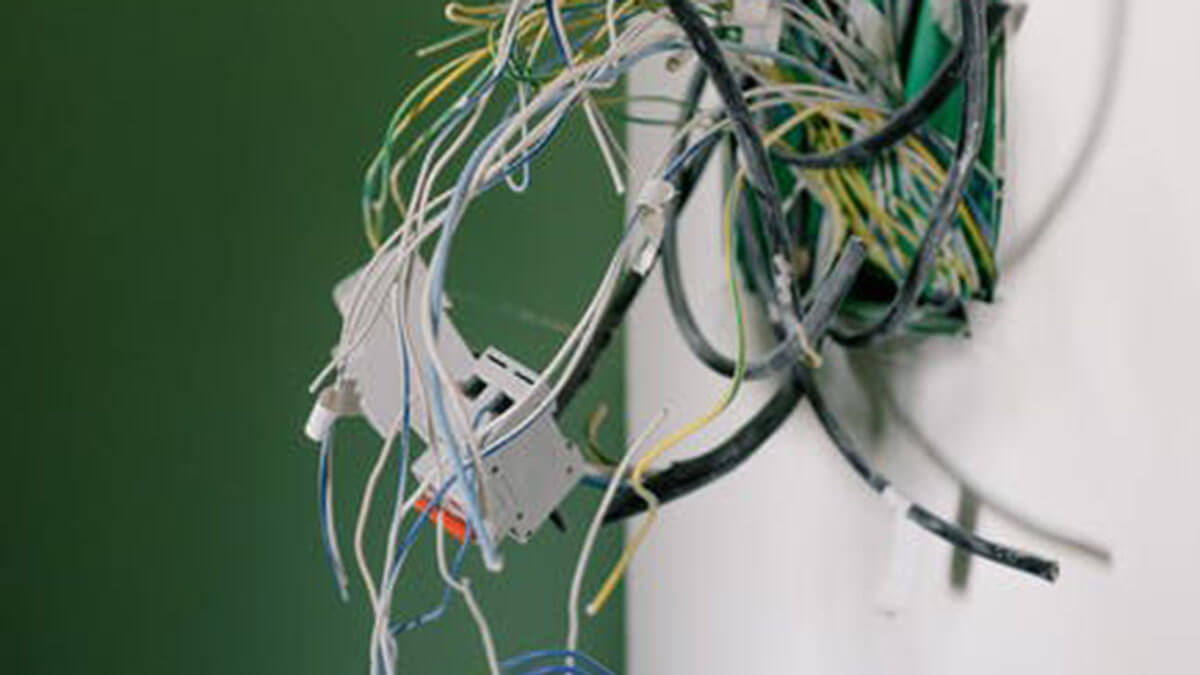You’ve just moved into your new home, only to find it’s riddled with undisclosed problems—nightmare scenario, right? From hidden structural issues to unreported water damage, these surprises can turn your dream home into a source of stress and financial strain. So, what can you do if you find yourself in this predicament?
Imagine bypassing the headaches of repairs and legal disputes altogether. At iBuyer.com, we offer a streamlined solution: sell your problematic home for a quick, fair cash offer. No need to worry about fixing the issues or dealing with complicated processes. We handle everything, allowing you to focus on finding a home that truly meets your needs.
In this article, we’ll dive into the steps you can take if you’ve bought a house with undisclosed problems. We’ll cover your legal options, practical repair strategies, and tips for avoiding such issues in future purchases.
Bought a House with Undisclosed Problems
Compare Cash Offers from Top Home Buyers. Delivered by Your Local iBuyer Certified Specialist.
One Expert, Multiple Offers, No Obligation.
Problems with your house after purchase
There is nothing worse than buying a house that has defects you were unaware of. Fortunately, there may be warranties on the house that can help you in a situation like this.
When your purchase your new house, some sellers offer you a third-party warranty. This warranty may help cover any undisclosed defects that pop up, and they usually cover the first year of you living in the property.
Before you purchase your home, it is best to ask if there is a warranty and to ask what is and is not covered. New homes typically come with 10-year warranties covering workmanship, home systems, structural components, and materials. Again, it is crucial to make sure you are aware of what the warranty includes.
Even if there is a warranty that covers any undisclosed home issues, there may be some limitations. For example, the warranty may cover a repair, but you may have to pay a deductible. The guarantee may also have excluded repairs listed on the policy.
What are material defects?
As mentioned earlier, you may uncover that there is a problem with the materials in your home. According to the International Association of Certified Home Inspectors, this defect encompasses anything that may pose a risk to those who live in the house. It also includes any materials that may have an impact on the home’s value.
Can I Sue the Previous Owner for Unpermitted Work?
Yes, you can sue the previous owner for unpermitted work if they did not disclose it, as they are legally obligated to do. Failing to disclose unpermitted work constitutes misleading real estate practices. You may have grounds for a lawsuit if the unpermitted work was hidden and not apparent during the home inspection.
Burden of proof
As mentioned earlier, you will need to show proof that the previous homeowner holds responsibility for these defects. For example, if you notice that there is a newly painted area that is now suddenly sporting a water stain, you will want to document that.
This proof can show that the homeowner tried to cover up the stain during the homebuying process. Another example would be if the previous homeowner painted over cracks in your basement to make it look more appealing. Once you have this burden of proof, you may be able to move forward with speaking with an attorney about a possible lawsuit.
What can a lawyer do?
If you decide to pursue a lawsuit against the involved parties, you will need to seek a lawyer specializing in real estate law. Your attorney may reach out to the responsible parties by sending out a demand letter.
The demand letter will detail the defects and how much you are looking to receive compensation for. Your attorney may try to settle this issue outside of court, but it may be a while before you receive any payment. You may want to consider other alternatives, such as selling your home to an iBuyer.
Dealing with home defects after purchase
Once you have located the defect, you may want to reach out to the seller or the agent who sold you the house. Each state has its own rules and regulations for disclosure laws.
The seller must disclose certain defects present in the property before the close of the sale. Although there are laws present that require homeowners to disclose any issues, sellers do not have an obligation to scout out any problems.
Reach out to the inspector
It is imperative to review your home inspection report before you close when you are buying a home. If the inspector missed any problems that an expert should notice, they might be liable for the defects. Make sure that you double-check the report and reach out to the inspector if you have any questions.
Contact the listing agent
A few states hold the listing agent responsible for undisclosed damages if you prove they bore responsibility. For example, there may be communication between the homeowner and the agent about hiding damages.
The listing agent does not need to crawl into the attic to inspect insulation; that is what a home inspector is for. The listing agent needs to disclose any information about the home’s condition that they are aware of. If you can prove that the agent did withhold information, they may have their license revoked.
Common undisclosed defects
The most common defects that you may encounter are lead-based paint, asbestos, radon leaks, and roofing problems. There may be other natural hazards present.
Other examples of natural hazards:
- Water damage
- Foundation issues
- Electrical issues
- Plumbing issues
- Bad sewer lines
- Improper ventilation
- Rotten wood
- Termites
- Heater issues
You may also encounter unrepaired or undisclosed damages from natural disasters. The previous homeowner may have claimed damages from a natural disaster, but they may have not correctly repaired it.
Most inspectors will uncover these damages during the inspection. If they do not, you must review your contract to see what you can remedy. You will also want to keep in mind that any home maintenance repairs may not qualify as a home defect.
I bought a house with problems not disclosed
If you bought a house with problems not disclosed, there are a few options available to you. You may want to partner with an attorney to file a lawsuit against the responsible party, but that can take time. A lawsuit also costs money, and there is no guarantee that you will win the lawsuit even with your evidence.
As mentioned earlier, you can sell your home to an iBuyer. Many customers prefer to use iBuyers because of the fast and accurate options that they offer.
What is an iBuyer?
An iBuyer, also known as an internet buyer, is a company that uses cutting-edge technology to provide you with the best cash offer for your home. The use an algorithm that uses the information you input and uses big data from houses sold in your neighborhood to determine the value of your home.
Selling to an iBuyer
If you are ready to sell your home to an iBuyer, you must first locate a reputable iBuying company. It is essential to work with a company that works with your home’s market area.
Once you find your company, they will ask for your contact information and information on your home. You will want to include as much information as possible so that the iBuyer can create the best evaluation of your home’s property value. Make sure that you include the condition of your home and any damages that you discovered.
Review your all-cash offer
Once the iBuyer receives the information about your property, they will generate an offer for you within about 24 to 48 business hours. They will send you the offer to your email, and you will have around five days to either accept or deny the offer. The offer they send you includes any closing costs and fees in addition to the net proceeds you will receive.
Accept the offer
If you find the offer to be of your liking, you can move forward with the process. Once you notify the iBuyer that you accept the offer, they will send you information about a home inspection.
This inspection is to make sure that what you put on your application matches what the inspector sees. When you submit your application, you must be open and honest about any defects that you notice.
If there are repairs that the iBuyer needs to complete, they will let you know. You will not need to pay for these repairs out of your own pocket.
Instead, the iBuyer will deduct the repair costs from your estimated proceeds. There is no need to worry about the repairs ruining your closing timeline. The iBuyer will take care of those repairs after you move out of the home.
Choose your closing day
Once the iBuyer completes their inspection and goes over any needed repairs, you can select your closing day. Most companies allow you to pick between two weeks and two months after finalizing the offer information.
After you close on your house, you will receive payment from the iBuyer. It takes a few days for you to receive compensation. You can then focus on buying a home suitable for you and your family!
Why choose an iBuyer?
Most people prefer to use an iBuyer because of how quickly the home selling process is. The traditional home selling process can take weeks, if not months, to complete. You may also have to pay for those home defect repairs out of pocket before the next home buyer even considers putting in an offer.
If you decide to sell traditionally, you will have to disclose those damages, and you may have to take care of those damages. With an iBuyer, you can move out in a matter of a couple of weeks. Your move-out day depends on when you pick your closing day.
No realtors involved
When you choose to use an iBuyer, there is no need for a middle man, or in this case, a real estate agent. You deal directly with the iBuyer’s team. There is no need to find the right agent to help sell your defective home. You also won’t have to pay any realtor commission fees.
Staging and showings
Once you close on your home, the iBuyer takes complete responsibility of your home. This means that they will take care of the staging and the showings of the property.
The iBuyer handles all of the marketing needed to sell the home. You walk away with your proceeds and peace of mind knowing they will take care of the rest. No more taking the time out of your day to show the home to potential buyers!
Solve your home issues today
If you bought a house with problems not disclosed, you might feel like you have no other choice but to try to repair your home or sue someone, but that is not true. A reputable iBuyer will provide you with a review of your available options.
Looking for cash offers on your home? You’ve come to the right place!
Reilly Dzurick is a seasoned real estate agent at Get Land Florida, bringing over six years of industry experience to the vibrant Vero Beach market. She is known for her deep understanding of local real estate trends and her dedication to helping clients find their dream properties. Reilly’s journey in real estate is complemented by her academic background in Public Relations, Advertising, and Applied Communication from the University of North Florida.




